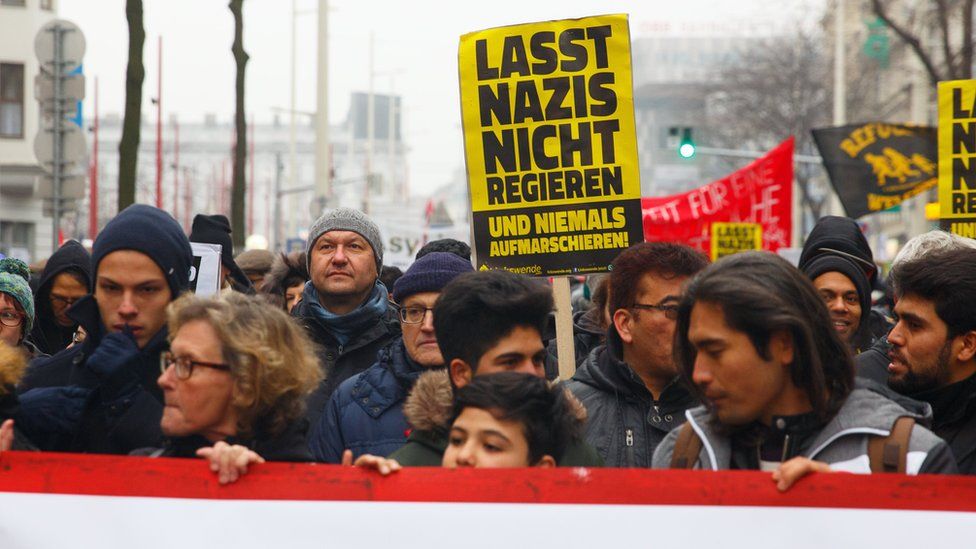Thousands of protesters gathered in Vienna on Thursday, voicing their concerns over Austria’s political landscape following the recent general election, where the far-right Freedom Party (FPO) achieved a historic victory. The FPO garnered 29% of the vote, marking a significant milestone for the Eurosceptic and Russia-friendly party, founded in the 1950s under controversial circumstances, including ties to Nazi leadership.
Despite its electoral success, the FPO fell short of an absolute majority, necessitating a coalition to govern. The conservative People’s Party (OVP), which finished second in the election, has expressed a willingness to consider an alliance with the FPO, albeit with the caveat that FPO leader Herbert Kickl would not be included in the government—a condition the FPO has firmly rejected.
“We want to say clearly now, preventively: Dear OVP, please do not enter into this pact again,” stated Marty Huber, one of the protest organizers, as demonstrators waved rainbow flags and banners proclaiming slogans such as “Protect democracy.” The march, which began at the University of Vienna, concluded outside the parliament, emphasizing the protesters’ commitment to safeguarding democratic values.
President Alexander Van der Bellen is expected to engage with the leaders of all parliamentary parties, starting with Kickl, to explore potential coalition talks. Observers suggest that the OVP holds significant influence in the current political climate and could opt to form a majority coalition with the third-placed Social Democrats and the liberal Neos party, thereby excluding the FPO from power. The ongoing discussions and public sentiment reflect the broader implications of the FPO’s rise and its potential impact on Austria’s political future.



